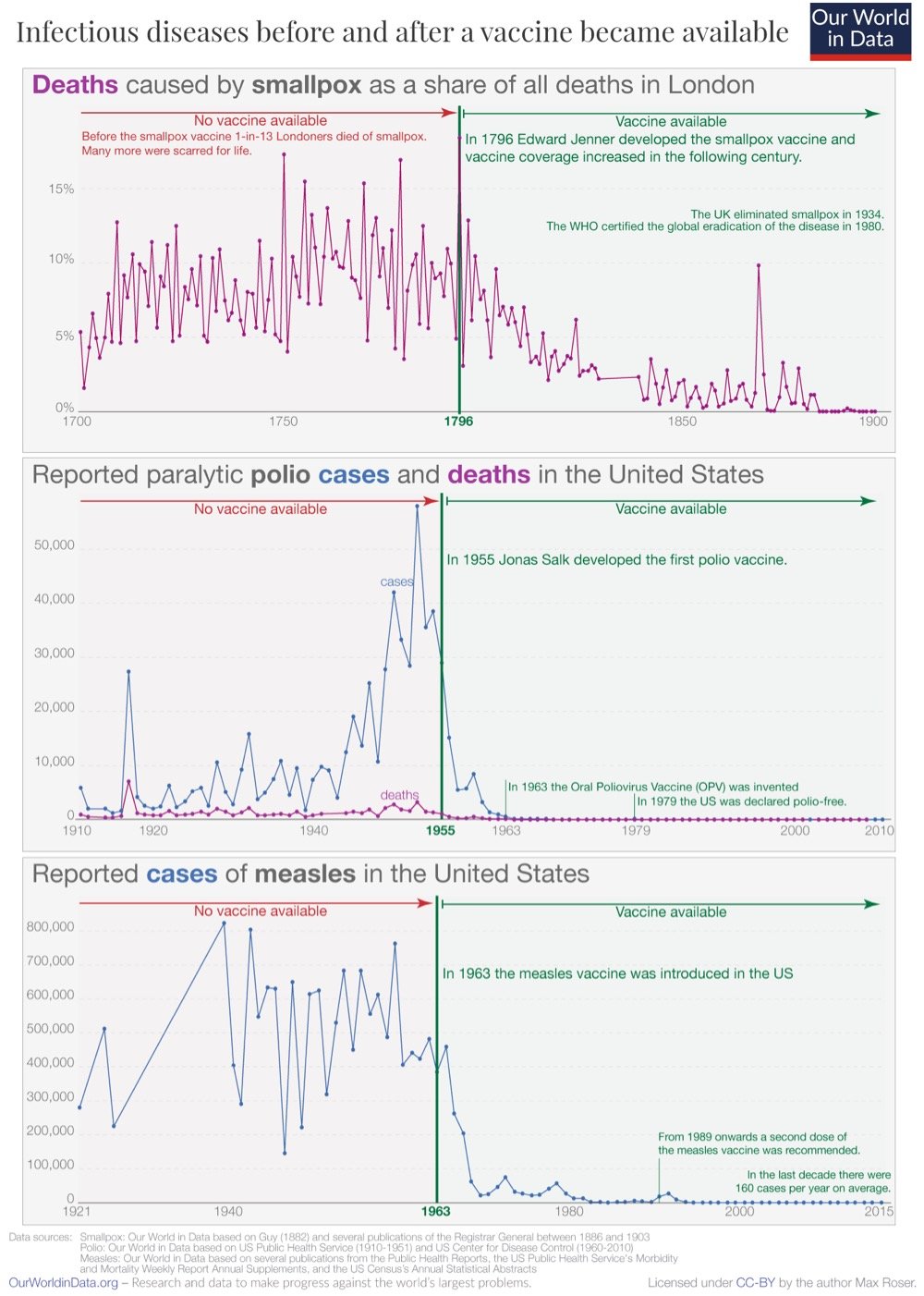Humans (and Vaccines!) Vs the Microbes
From Max Roser at Our World in Data: Our history is a battle against the microbes: we lost terribly before science, public health, and vaccines allowed us to protect ourselves.
Science is the foundation for our success. 150 years ago nobody knew where diseases came from. Or more precisely, people thought they knew, but they were wrong. The widely accepted idea at the time was the ‘Miasma’ theory of disease. Miasma, the theory held, was a form of “bad air” that causes disease. The word malaria is testament to the idea that ‘mal aria’ — ‘bad air’ in medieval Italian — is the cause of the disease.
Thanks to the work of a number of doctors and chemists in the second half of the 19th century humanity learned that not noxious air, but specific germs cause infectious diseases. The germ theory of disease was the breakthrough in the fight against the microbe. Scientists identified the pathogens that cause the different diseases and thereby laid the foundation for perhaps the most important technical innovation in our fight against them: vaccines.
Here’s what vaccines did for us, in three charts:

Even among those who accept and understand how good vaccines are at stopping disease, it’s difficult to truly appreciate just how incredible and transformative they have been. By one estimate, vaccines saved between 150 & 200 million lives from 1980 & 2018…and that’s just for smallpox. Covid-19 vaccines have saved hundreds of thousands of lives in Europe and the US in the first year of their availability. Truly a miraculous invention.





Stay Connected